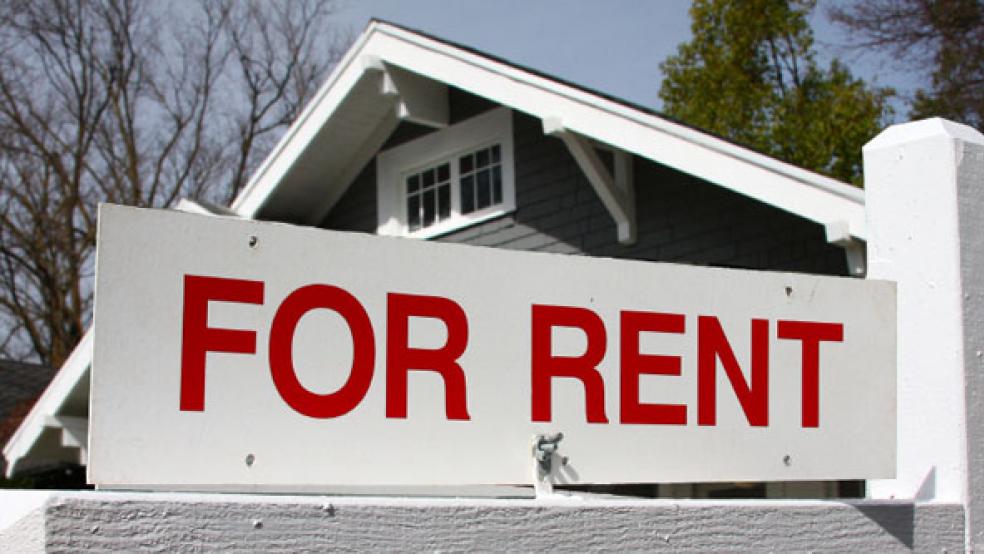It's a long-held belief that rental properties hurt the values of nearby homes.
"Buyers are definitely concerned about too many renters," says Herman Chan, a real estate broker in San Francisco. "People are less inclined to make an offer on a house that is in a street filled with apartment buildings (because) they perceive (the area) to be more congested, have less parking, and consider the residents more transient."
Although those perceptions are often true -- and sometimes valid -- it's hard to quantify the impact that rental properties have on home values, according to William Rohe, the director of the Center for Urban and Regional Studies at the University of North Carolina at Chapel Hill.
"I think there is a stigma about renters, but the research just isn't there to say for certain that a given amount of rental properties in a neighborhood brings values down by a specific amount," Rohe says.
What data there are on the topic comes from a study Rohe co-authored in 1996 that looked at homeownership. For every single percentage point increase an area saw in homeownership, Rohe and his colleagues found a corresponding increase in value, over the course of a decade, of about $1,600.
RELATED: 7 RENTALS ARE ROCKING THE HOUSING MARKET
"It's possible that the converse is true, that renters bring values down," Rohe says. But he cautions that a lot of factors go into a home's value, and those findings may not have the same weight in a post-crisis market. For now, the hard evidence remains elusive.
Cause for concern
Historically, Rohe acknowledges, the stigma against renters often has been a stand-in for discrimination on racial, ethnic and class lines. Although those prejudices still can be seen in some markets, Rohe says homeowners sometimes have valid reasons to be concerned about an abundance of renters.
In general, says Rohe, renters don't participate in their neighborhoods the same way that homeowners do. Because they are more transient, renters are less likely to participate in neighborhood associations. At the same time, homeowners are more likely to be a political force to be reckoned with because they're expected to remain in their neighborhoods.
"Homeowners just have a greater ability to effect the kinds of changes that make a neighborhood desirable," Rohe says.
It's not necessarily true that the presence of renters, even in large numbers, is a bad thing. There is no identifiable tipping point at which renters change a neighborhood or affect values, Rohe says.
RELATED: CAN TOO MANY RENTERS BRING DOWN THE NEIGHBORHOOD
"There's a lot of research to show that rental properties are kept up as well as homes, and when they're not, it's usually the landlord, not the renter, who is to blame," Rohe says.
A dwelling's condition counts for a lot
Kurt Wannebo, CEO of San Diego Real Estate & Investments, says he's never encountered a buyer who turned up his nose at a property just because it was near rental housing.
"They tend to look more at the condition of the nearby homes and the neighborhood in general," Wannebo says. "Renters can be very responsible people, so it's more on the landlords, and whether they keep the properties they rent out maintained and looking good."
The local market is an important factor. In areas with rent control laws, renters are more likely to behave like homeowners, Rohe says, because they have an incentive to stay for the long haul. But you don't necessarily need rent control to make that happen. If the rental housing market is tight, you're also more likely to see renters acting like homeowners.
Condos could be a different story
Although the renter's stigma may be overblown in the single-family home market, it's a different story when it comes to condominiums, which are subject to a tighter set of financing rules.
RELATED: THE FIVE WORST RENTAL SCAMS
"With condos, if the owner occupancy rate is too high for some types of financing, then we would need to make a price adjustment to compensate," Wannebo says.
Usually, when a condo has more than 30 percent of the units occupied by renters, lenders tend to worry that the residents in the building don't have enough skin in the game to keep up the property, Chan says.
"If I'm pricing a condo listing where the renter occupancy is approaching 30 percent or more, I must advise my sellers that the inventory of qualified buyers drops significantly, which can impact desirability, and in turn, value," Chan says. "Only all-cash buyers or people with specialized lenders who can look past the number of renters will be able to make an offer."
In both scenarios, the sale price usually falls, either because the cash buyer demands a discount or the lender who's able to work around the occupancy issue most likely charges a higher interest rate.
This piece originally appeared at Bankrate.com




